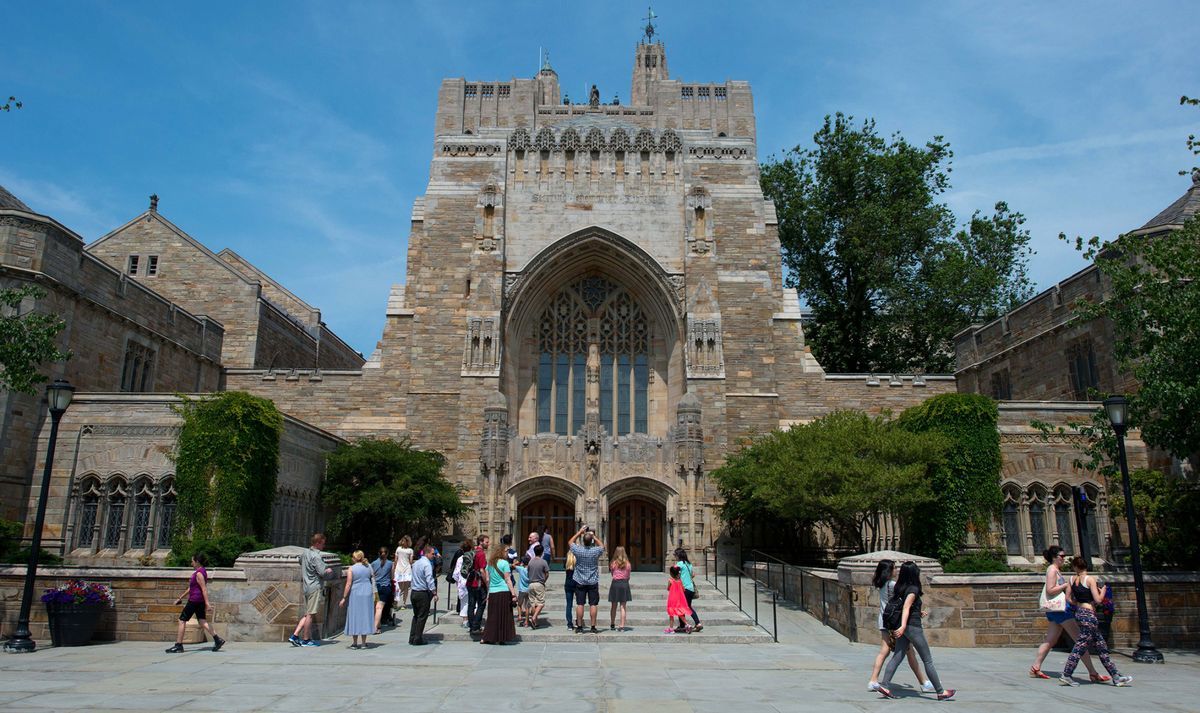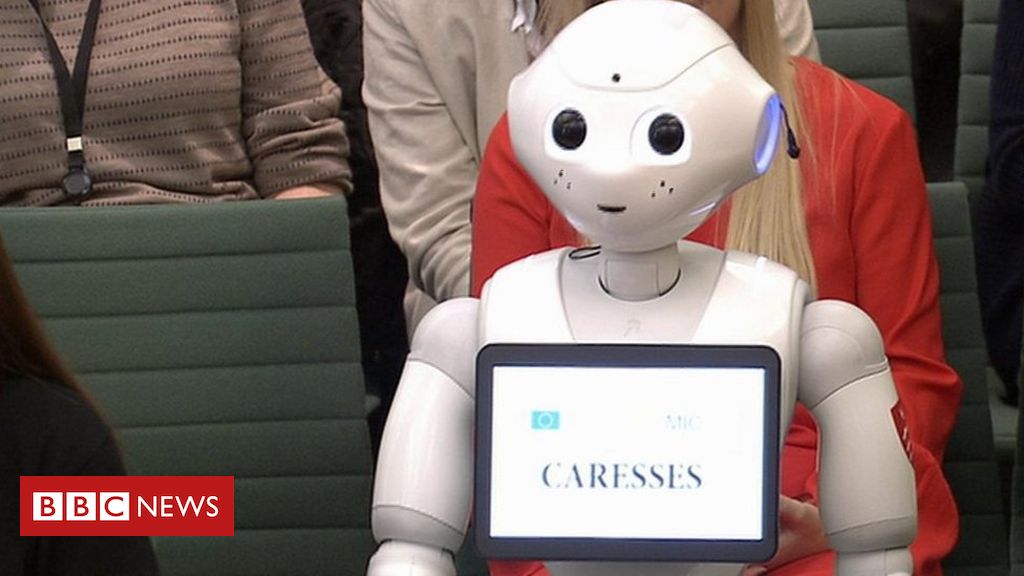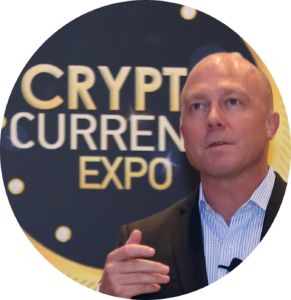Yale University, the Ivy League school that has invested in everything from Puerto Rican bonds to timber in New Hampshire, is getting into the market for cryptocurrencies.




The federal government has announced the appointment of Australia’s first Women in STEM Ambassador, with Professor Lisa Harvey-Smith charged with overseeing the country’s attempt to diversify its science, technology, engineering, and mathematics sectors.
An astrophysicist professor, Harvey-Smith will specifically advocate for girls and women in STEM education and careers, aiming also to raise awareness in the male-dominated industry and drive cultural and social change for gender equity.
SEE: The state of women in computer science: An investigative report [PDF download] (TechRepublic cover story)

Authorities in China’s far-western Xinjiang region appear to have officially legalized so-called re-education camps for people accused of religious extremism, a little more than a month after denying such centers exist.
The Xinjiang government on Tuesday revised a local law to encourage “vocational skill education training centers” to “carry out anti-extremist ideological education.”
Human rights organizations have long alleged the Chinese government has been detaining hundreds of thousands of Uyghurs — a Turkic-speaking, largely Muslim minority native to Xinjiang — in such centers as part of an effort to enforce patriotism and loyalty to Beijing in the region.
This video is the culmination of documentaries from the vacuum tube, transistor and integrated circuit eras of computing.
[0:40–20:55] — Vacuum Tube Documentary
[20:55–30:00] — Transistor Documentary
[30:00–59:18] — Integrated Circuit Documentary.
It is important to know why a program does what it does. This is not a mystery, technology is a tool and that tool is only as good as the human who created it.
You always have to know why a program, makes the decisions that it makes. No program or Algorithm will be perfect, that is the main issue that Lisa Haven brings forward. You also have to make sure of the reason for the error whether it is innocent or intentional or even criminal.
That is the problem when you blindly allow technology to rule the day. Anyone from an old-school management upbringing will tell you, never to allow technology to govern your decisions on its own. You always have to know why, where, and how on your decisions.
It is important to get this kind of technology right. Everyone wants a shortcut, instead of doing the hard work to ensure that information being put forward is correct.

Len Blavatnik, the Ukrainian-born and Russian-raised billionaire businessman with a net worth of $17.9 billion, says he has given away $500 million to charity so far, mostly to world-renowned universities like Oxford, Harvard, Stanford and Yale. When asked why he favors donating to higher education institutions, he explains shrewdly that for him, conducting philanthropy is like running a business.
Len Blavatnik, who made his first billions in Russia, credits much of his success to his academic parents and to his education. He’s given hundreds of millions to universities mostly in America and England.

For too long, presentations of science for the general public, and education in schools, has suggested that science wields a sort of hegemonic power, as if its terms and methods gradually replace and make redundant all other discourse; the only reason it has not yet completed its conquest is that the world is complicated—but it is only a matter of time…

The Disruption Experience this Friday in Singapore is a blockchain event with a difference. With apologies to the Buick commercial, this is not your grandfather’s conference…
I know a few things about blockchain conferences. I produced and hosted the first Bitcoin Event in New York. My organization develops cryptocurrency standards and practices. We help banks and governments create policy and services. And as public speaker for a standards organization, I have delivered keynote presentations at conferences and Expos in Dubai, Gujarat India, Montreal and Tampa, New York and Boston.

Many individuals don’t yet realize that both Bitcoin and the blockchain are as significant as the automobile, the transistor and the Internet. I was fortunate to grasp Bitcoin and the blockchain early in its history. It is never boring to help others understand the blockchain.
And so, I am an evangelist for both a radically improved monetary system and a transformative tool. During the past eight years, I have honed the skill of converting even the most profound skeptic. Give me 45 minutes in front of any audience—technical, skeptical or even without any prior knowledge—and I will win them over. It’s what I do.
An Atypical Conference Venue
As Bitcoin and altcoins begin the process of education, adoption and normalization, the big expos and conference events have begun to splinter and specialize. Today, most blockchain events market their venue to specific market sectors or interests:

 For me, Smart Contracts are one of the most exciting and potentially explosive opportunities. As a groupie and cheerleader, I am not alone. Catering to the Smart Contract community is rapidly becoming a big business. Until this week, I thought it was the conference venue that yielded the biggest thrills. That is, until I learned about the Disruption Experience…
For me, Smart Contracts are one of the most exciting and potentially explosive opportunities. As a groupie and cheerleader, I am not alone. Catering to the Smart Contract community is rapidly becoming a big business. Until this week, I thought it was the conference venue that yielded the biggest thrills. That is, until I learned about the Disruption Experience…
Few widely promoted, well-funded events address the 600 pound elephant in the room: What’s the real potential of blockchain trust, blockchain economy or blockchain AI? Take me beyond tokens and currency (please!). How can an international event help us to realize the potential of a radical new approach to accounting, trust and arbitration? Let’s stop arguing about Bitcoin, Ethereum or ICOs…
How can we unleash the gorilla—and grease—
a fundamental change that benefits mankind,
while providing leapfrog technologies for us?
—At least, that’s my spin on the potential of an unusually practical venue.
That question is slated to be answered on Friday at a big event in Singapore. And get this—It is modestly called a “Sneak Peak”. This is what I have been waiting for. The Disruption Experience premiers on September 28 at the V Hotel Lavender in Singapore. But don’t show up at the door. This event requires advance registration. (I do not offer a web link, because I hate being a conference huckster. If you plan to be in the area at the end of this week, then Google the event yourself).
What’s the big deal?
 The Disruption Experience team is populated by blockchain developers, educators and trainers who take issue with existing events that focus on monetization. The purity of intention was overrun by greed. And so, they set out to form an event with a more altruistic purpose: Build technology, relationships, mechanisms and educational tools that better mankind. The focus at this event and the conferences that follow is to educate, expose and innovate. The focus is squarely on disruptive technology.
The Disruption Experience team is populated by blockchain developers, educators and trainers who take issue with existing events that focus on monetization. The purity of intention was overrun by greed. And so, they set out to form an event with a more altruistic purpose: Build technology, relationships, mechanisms and educational tools that better mankind. The focus at this event and the conferences that follow is to educate, expose and innovate. The focus is squarely on disruptive technology.
With their team of blockchain innovators focused on benefits and progress, I suspect that attendees will get what we have been searching for: Education, investment opportunities, an edge on new technologies and job opportunities.
Cusp of a Breakout Year
As an analogy, consider the race to understand Bitcoin and consider the engines & motors.
 Bitcoin and the blockchain were introduced simultaneously in a 2009 whitepaper. It’s a bit like explaining the engine and the automobile together—for the very first time. One is a technology with a myriad of applications and the potential to that drives innovation. The other is an app. Sure, it’s useful and important, but it’s just an app.
Bitcoin and the blockchain were introduced simultaneously in a 2009 whitepaper. It’s a bit like explaining the engine and the automobile together—for the very first time. One is a technology with a myriad of applications and the potential to that drives innovation. The other is an app. Sure, it’s useful and important, but it’s just an app.
For 8 years, Bitcoin was a radical and contentious concept. Of course, there was the mystery of Satoshi and an effort to pinpoint his or her identity. And, a great debate raged about the legitimacy and value of decentralized, ethereal money. But, the interest was reflected primarily on the pages of Wired Magazine or at Geek-fests. Bitcoin was complex and costly to incorporate into everyday purchases and there were questions and gross misconceptions about hacking, regulation, taxes, criminal activity. The combined audience of adopters, academics, miners and geeks was limited.
That changed last year. With serious talk of exchange traded funds, a futures and derivatives market began to take shape. A critical operational bottleneck was addressed. Ultimately, 2017 was a breakout year for Bitcoin. You may not be using it today, but the smart money is betting that it will enhance your life tomorrow—at least behind the scenes.
 Likewise, 2019 is likely to be the breakout year for blockchain applications, careers, products and—perhaps most importantly—public awareness, understanding and appreciation. Just as motors and engines are not limited to automobiles, the blockchain has far more potential than serving as an engine for decentralized cash. It is too important to be just a footnote to disruptive economics. It will disrupt everything. And we are the beneficiaries.
Likewise, 2019 is likely to be the breakout year for blockchain applications, careers, products and—perhaps most importantly—public awareness, understanding and appreciation. Just as motors and engines are not limited to automobiles, the blockchain has far more potential than serving as an engine for decentralized cash. It is too important to be just a footnote to disruptive economics. It will disrupt everything. And we are the beneficiaries.
What is Interesting at The Disruption Experience?
The Friday event in Singapore covers many things. The presentations and tutorials that quicken my pulse relate to:
If you read my columns or follow my blog, then you know I am not keen on initial coin offerings (ICOs). That’s putting it mildly. They are almost all scams. But a rare exception is the Tempow ecosystem which encompasses three functional tokens. Stop by their exhibit and meet the officers of a sound economic mechanism that facilitates decentralized trading while overcoming the efficiency paradox.
What can I do at Disruption Experience?
The September 28 event is a preview for January’s Inaugural Event.
 Meet the Disruption Team
Meet the Disruption Team… and much, much more.
If you get to the big event, be sure to find the organizer and host, Coach Mark Davis. Tell him that I sent you. His passion and boundless enthusiasm for the blockchain and especially for transformative disruption is quite infectious.
Related reading:
Philip Raymond co-chairs CRYPSA, hosts the New York Bitcoin Event and is keynote speaker at Cryptocurrency Conferences. He sits on the New Money Systems board of Lifeboat Foundation and is a top Bitcoin writer at Quora. Book a presentation or consulting engagement.

In a world increasingly driven by industries that rely on advanced technical learning and innovation, fluency in STEM fields (science, technology, engineering and math) becomes more vital every day. Yet our education system isn’t keeping up. Five years ago, a Business-Higher Education Forum study found that 80% of high school students either lacked interest or proficiency in STEM subjects. Meanwhile, a college and career readiness organization known as ACT reported last year that the number of students pursuing STEM careers is growing at less than 1% annually.
The Amgen Foundation is doing something about it. As the principal philanthropic arm of Amgen, the largest independent biotechnology company, the Amgen Foundation has been committed to inspiring the next generation of scientists and innovators by making immersive science education a focus of its social investments for almost 30 years. While Amgen has reached millions of patients around the world with biotechnology medicines to combat serious illnesses, such as cardiovascular disease, cancer and migraines, the Amgen Foundation has reached more than 4 million students globally—and it is poised to launch a new program called LabXchange with the potential to reach millions more.
“As a scientist, it’s clear to me that the most effective way to learn science is by doing it,” says David Reese, executive vice president of Research and Development at Amgen and member of the Amgen Foundation board of directors. “It’s time to transform the science learning experience. We need to move from information acquisition to application and exploration, from students as passive listeners to active participants in the learning process, from teachers as knowledge transmitters to facilitators and coaches.”